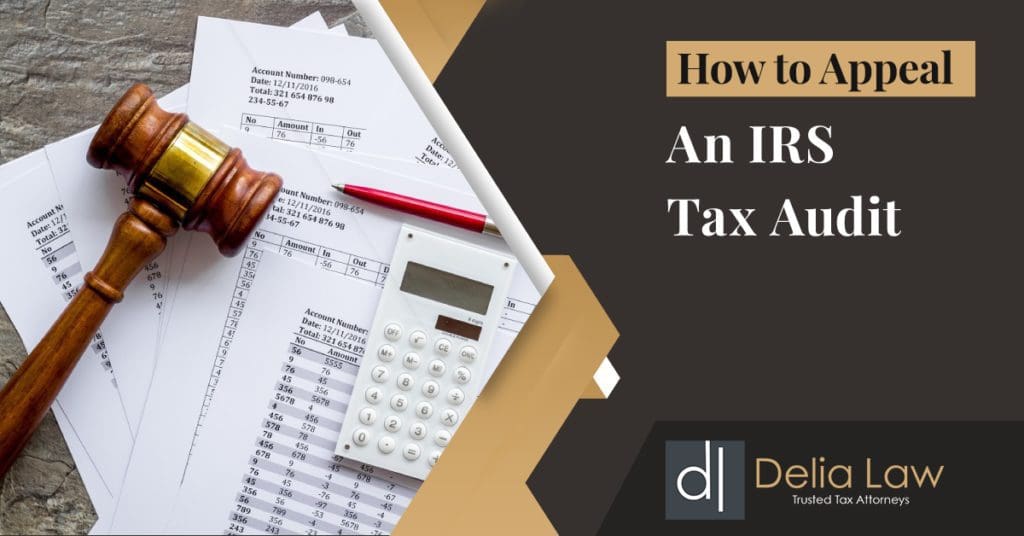If you’re one of the unlucky ones facing an IRS audit and wish to appeal the IRS’s decision, the agency outlines a straightforward appeal process for you. The IRS appeals process is easier than you think, and you have an excellent chance of achieving some tax reduction.
Is an Appeal the Right Option for You?
Before taking steps to request an appeals conference, it’s important to make sure it’s the right option for you.
Consider the following:
- Do you disagree with the IRS’s decision?
- Have you received a letter explaining your right to appeal the decision?
- Have you discussed the IRS’s findings with your auditor and have been unable to reach an agreement?
If you answered yes to these questions, you might be ready to start the appeals process. An appeals conference may be requested if the IRS:
- Used incorrect facts when making their decision.
- Misunderstood the facts and, as a consequence, applied the law improperly.
- Misinterpreted the law.
- Is taking inappropriate collection against you.
- Denies your offer in compromise, and you disagree with the decision.
You must be prepared to support your claim and provide evidence in all of these cases.
How to Appeal an IRS Tax Audit
If you determine that an appeal is the best course of action for your case, the next step is formally requesting an appeal. You can do this by either:
- Filing a protest (if your audit is more than $25,000)
- Filing a small case request (if your audit is less than $25,000)
File a Protest
You may have the right to file a protest and request an Appeals conference. However, if your penalty is less than $25,000 for the tax period, you may want to skip to the “File a Small Case Request” section below. A formal protest is a letter sent to the IRS if your IRS tax audit is more than $25,000.
In this case, you’ll want to send in your protest with the following information included in your letter:
- Full legal name(s)
- Social Security number(s)
- Statement expressing your desire to appeal the examination report
- Copies of the report and your 30-Day letter
- Signature(s) and date
Additionally, you’ll want to include pertinent information on which areas of the report that you believe are wrong. If you want to strengthen your protest, you’re allowed to supply any supporting documentation that you have to support your explanation of why the report is incorrect.
You can, and should, also include the penalties and interest that you disagree with.
When sending in your protest, be sure to send it via certified mail and request a return receipt to ensure that the IRS receives the documentation.
What is the Time Limit for an Appeal?
IRS appeals are time-sensitive, and you must send in your appeal within 30 days. However, you might not have an initial right to protest the IRS exam. The letter that you receive with your audit will shed some insight on what steps to take next:
- 30-Day Letter: You have 30 days to submit your protest, so be sure to act quickly.
- 90-Day Letter: You have 90 days to file a petition with the tax court.
If you receive a 90-Day letter, you’ll file the petition in tax court and then will likely have an appeal hearing scheduled. You don’t need to settle during the hearing, but you’ll have the option to if the terms are favorable.
Oftentimes, when a settlement isn’t reached, the individual will contact a lawyer.
Filing a Tax Court Petition
The Tax Court makes it easy to submit a petition. You can use the petition kit or you can submit your petition using the online Docket Access Within a Secure Online Network (DAWSON) system here.
You’ll want to be as thorough as possible when filing your petition.
Since the Tax Court doesn’t have the legal right to extend your petition filing time, it’s crucial to send in the petition within the timeframe mentioned in your notice.
File a Small Case Request (For Appeals Under $25,000)
If you owe $25,000 or less – including additional tax and penalties – then you may file for a Small Case Request. Please note that S corporations, employee plans, partnerships and exempt organizations may not file a Small Case Request.
If you wish to go this route when appealing your audit, follow the instructions in the letter you received from the IRS.
- Fill out Form 12203 Request for Appeals Review.
- List each item you disagree with and your reason for disagreeing.
Once you have completed this form, mail it to the address listed on the heading of the IRS letter you received.
IRS Appeals Hearing – What to Expect
The IRS Independent Office of Appeals handles appeals, and as the name suggests, the office is independent of the IRS office carrying out the audit.
Hearings are informal, and in most cases, matters are settled without having to take the next step of a court trial.
Here are a few important things to know:
- You may represent yourself at the hearing.
- If you choose to be represented by another person, this person must be one of the following: an enrolled agent who is authorized to practice before the IRS, an attorney, or a certified public accountant (CPA).
- You may have your representative speak with the IRS on your behalf, but you will need to provide a signed copy of a power of attorney (Form 2848).
- You or your representative must be prepared to discuss all items that you disagree with and your reasoning/evidence for disagreement.
If you cannot come to an agreement during the hearing, you will receive a Notice of Deficiency. Once you receive this notice, you can take your case to the U.S. Tax Court.
Get Professional Assistance from Delia Law for your Tax Audit Appeal– What to Expect
If you become involved in an audit appeal for your tax return, contact the experienced tax lawyers at Delia Law. We can address your concerns with the utmost care and help you navigate the audit process. No matter where you live, our team is available nationwide. You can call our offices located in Bethesda, Los Angeles, New York, and San Diego. Contact us today for a free consultation.














